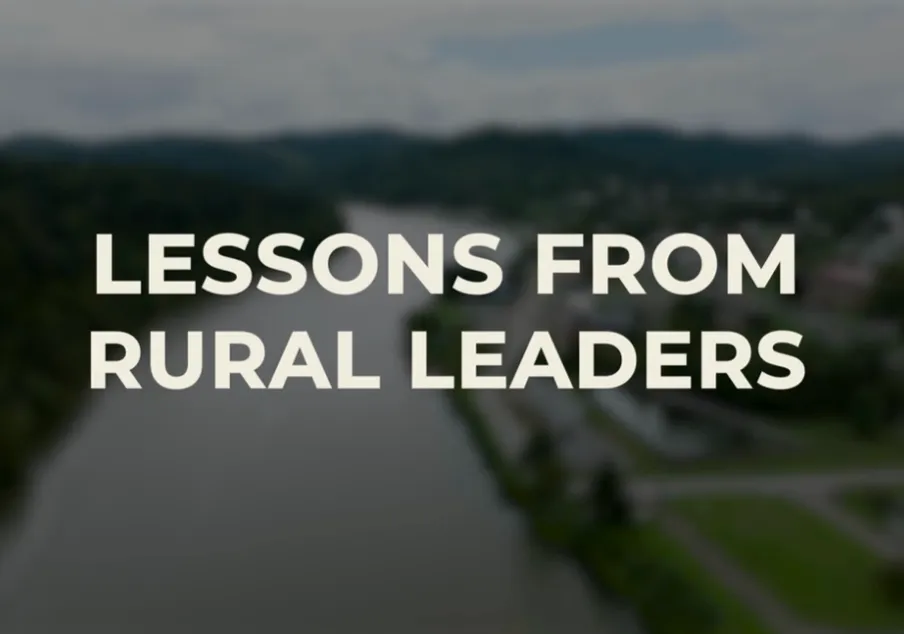Lessons learned from rural partnerships

Strengthening rural justice with collaboration
Drawing directly from the experiences of those working on the front lines, this series showcases effective strategies and collaborative approaches aimed at improving outcomes for individuals affected by substance use in rural communities.
Through firsthand accounts and practical examples, NCSC and the Rural Justice Collaborative (RJC) are working to inspire and inform justice, health, behavioral health, service, and community stakeholders dedicated to advancing positive outcomes in their rural communities.
Funded by the State Justice Institute and produced for the RJC by Mtn Craft in collaboration with our partner Rulo Strategies, this series highlights insights and lessons learned from rural leaders actively engaged in cross-sector partnerships.
Discover unique qualities
Success in rural communities requires local, culturally aware approaches, patience, and adapting to capacity and partnership realities rather than relying on one-size-fits-all models. Embrace what is unique about your community to identify strategies that build local strengths.
Watch: Embrace what is unique about rural communities
Identify community champions
Champions are someone with influence, compassion, or authority who can model support and inspire others to join. Whether it's a county attorney, an EMS partner, or a sheriff, champions build credibility, reduce resistance, and create momentum for lasting success.
Establish impactful partnerships
Strong partnerships require choosing the right people who are committed, trustworthy, and action-oriented, who value communication and a shared focus on community needs. Creative and diverse collaborations, from law enforcement to animal shelters to faith communities, expand reach, build trust, and make solutions more effective.
Maximize your common ground
Lasting collaboration in rural communities depends on finding common ground, even when partners have different perspectives, priorities, or ways of communicating. By listening with openness, adapting to others' language, and focusing on shared goals, communities can build trust, reduce silos, and create collective success.
Embrace a culture of sharing
Sharing resources, whether it's space, staff, equipment, or knowledge, can make a powerful difference in rural communities where assets are limited. By avoiding duplication, building trust among partners, and uncovering hidden capacities, communities can stretch their impact and meet needs more effectively together.
Establish trust
Building trust takes time, consistency, and genuine care for both partners and the broader community. By showing up, following through on commitments, and demonstrating long-term investment, practitioners can build credibility, reduce stigma, and create stronger collaborations.
Watch: Build trust with partners and the community
Celebrate your success
Sharing successes openly with the community builds trust, reduces stigma, and inspires continued collaboration. By celebrating progress, telling real stories, and keeping partners and residents informed, communities create motivation and reinforce the value of their collective efforts.
Watch: Share your success with the community
Staying the course
Persistence is essential when building programs and partnerships in rural communities. By staying flexible, learning from setbacks, and waiting for the right timing, practitioners can turn resistance into support and create lasting impact.
Strategies for strengthening rural justice
Through its activities, the Rural Justice Collaborative encourages partnerships among rural justice practitioners and key stakeholders to build robust networks that support innovative practices to meet the unique needs of rural communities.
Our expert
Explore more
How to establish (and maintain) navigator program funding, part 1
Learn from established court navigator programs about the realities of funding and sustainability and gain practical insights into budgeting, resource allocation, and strategies for building a financially viable program.
Data Dives: AI solutions for courts to address the digital divide
Learn about NCSC's new initiative that will use AI solutions to address long-standing structural challenges that limit efficiency, accessibility, and service quality in rural courts.
Using technology & remote services in navigator programs - part 2
Apply what you learned during our our Feb. 6 Court Navigator School webinar, "Using technology & remote services in navigator programs," during this study hall session.





